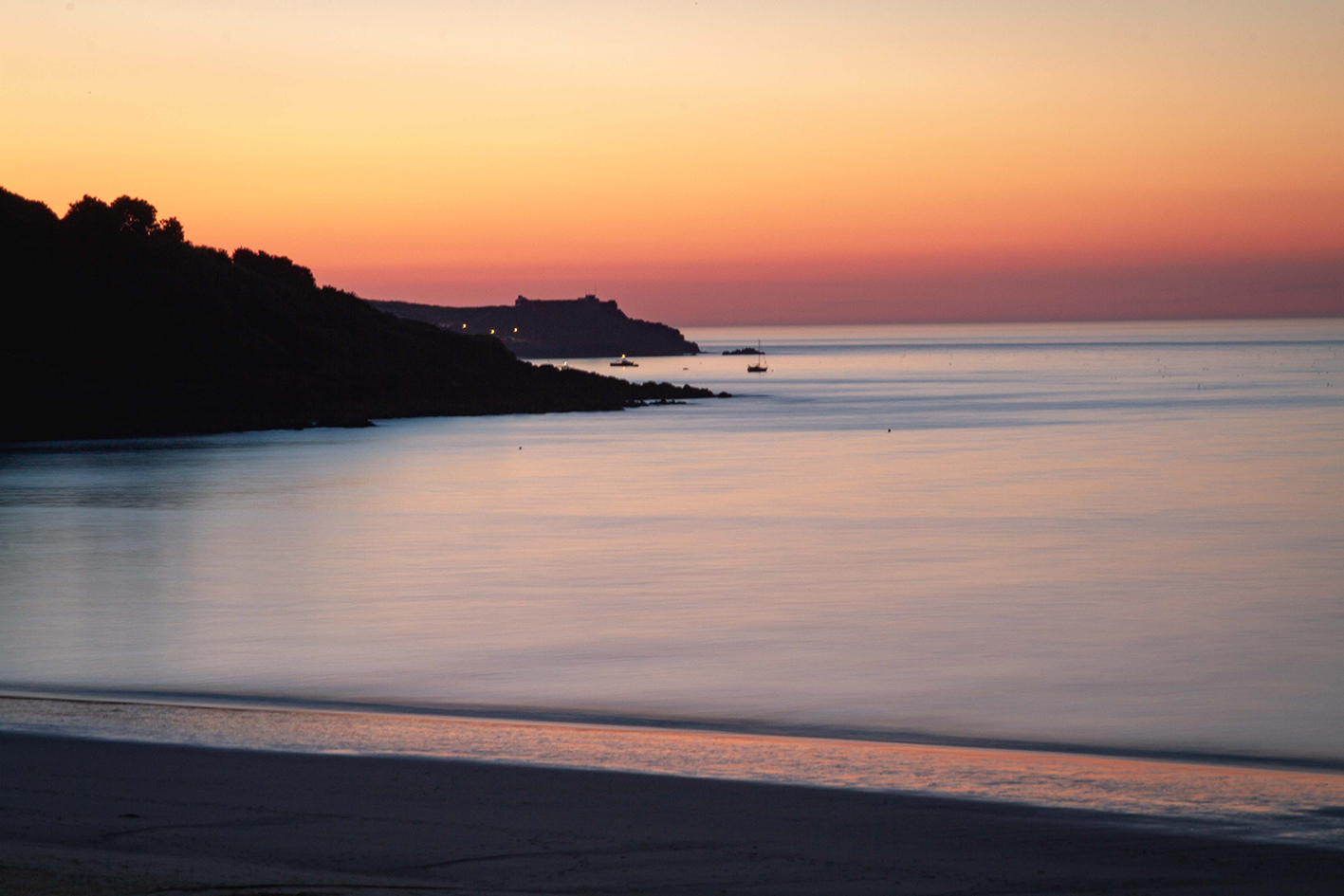
Travel /
Throw open the curtains at Carbis Bay Hotel and you’re met with endless blues, sand so white you could be in Barbados and, if you’re lucky, even a pod of dolphins bobbing around in the calm waters. This is the location – one that is so engulfed by nature and environmental celebration – that has been chosen as the host of the inaugural G7 Summit.
The annual three-day meeting of the Group of Seven leaders has the power to shift the direction of economic growth. To host the meeting somewhere so intrinsically dedicated to supporting sustainability is exciting, with Julian German, the leader of Cornwall council, optimistic that the legacy of doing so will help the county move forward with investments in green energy.

The 45-room hotel, which overlooks a Blue Flag beach 20 minutes’ walk from artistic St. Ives, is one well worth visiting. Both the hotel, housed in the original cliff-side property, and the new self-catering lodges are stunning, but the Beach Lodges seriously won me over. Built using kebony, a sustainable product made more durable and aesthetically appealing through the infusion of bio-waste (a process called kebonisation, that permanently modifies the cell wall of the timber), they are incredibly low carbon.
Design-led, without being overdone, there’s no sacrificing style for a family-friendly affair – think hessian, slate and modern art. As if direct beach access, hot tubs in private gardens and the amenities of the hotel (breakfast can even be brought in hampers to your door) wasn’t enough, you can also expect freestanding copper bathtubs looking out over the ocean, and wake up to waves lapping at the garden below.
Pioneering in its sustainability initiatives, it’s no surprise that the G7 summit felt this hotel was a worthy host. With waste disposal at the forefront of their green ways, and an on-site Energy Centre that provides a carbon saving of approximately 70-tonnes per annum, Carbis Bay has been pushing ahead with changing the face of the future for a while – notably in hospitality realms.
As a travel writer, I often find that I’m drawn back to certain places or that situations lead me back to one place time and time again, and Carbis Bay is one of those. A few years ago, I stumbled across two inspirational men who’d set up a company called Oltco, a company that produces resin-based solutions from waste plastic. It transpired that, soon after talking, Carbis Bay became the first hotel in the world to install pathways and a promenade from Oltco, using the equivalent of 3.5 million plastic straws from the ocean.
Considering the hotel practically resides in the ocean, it would be rude not to consider the plastic plight, but Carbis Bay truly delivers, something that led to it being awarded the AA Eco Hotel of the Year in 2019. Prior to Covid-19, the hotel also partnered with ocean campaigners Parley to remove 50 metric tonnes of plastic from the sea. Clearly, protecting the ocean is a key part of the identity of Carbis Bay and their devotion to the water is seen through many of their in-house enterprises.
It’s a special place with a special soul, and couldn’t be a more fitting destination for a revolutionary event. If you like the idea of scouting out the location before the rest of the world descends, now might be a good time to get a pencilled-in date in your diary.
One of the most well known eco-hotels in the UK, adults-only The Scarlet is perched on rocks on Mawgan Porth beach and has 111 different ways it’s sustainable.
Having also won an award for being one of the best sustainable hotels, The Nare overlooks beautiful Carne Beach and adopts initiatives such as re-harvesting rainwater.
Another luxury hotel with a gold-standard green policy, The Greenbank Hotel is in bohemian Falmouth and a beautiful place to stop.